Government also lifts Ramadan commerce restrictions in Arab-majority areas as virus numbers keep going down, but keeps children’s playgrounds and beaches shut
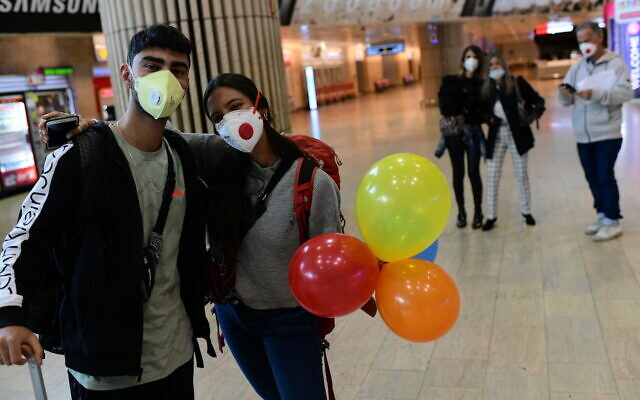
Israel is easing its requirement for all arrivals from overseas to quarantine for 14 days at state-overseen isolation hotels, and instead will allow returning Israelis and others whose lives are centered in Israel to self-quarantine if they can do so, the cabinet announced after midnight Sunday. An entry ban on nationals from other countries whose homes are not in Israel remains in force, as the country keeps up its battle against COVID-19.
The cabinet also eased some Ramadan lockdown restrictions and reopened parks and nature reserves. The steps came as the containment measures introduced to stem the outbreak have successfully brought the number of daily cases down to dozens.
Currently Israel bars almost all foreigners from entering the country and returning Israelis must quarantine for two weeks. Under the new rules, those who can prove that they have a place to self-quarantine — like an empty apartment or completely separate living area from other residents in the home — will be allowed to do so there.
The cabinet said that those people currently in isolation hotels who can self-quarantine will also be allowed to do so. However, anyone without a self-quarantine option will still be required to quarantine for two weeks at an isolation hotel at the government’s expense.
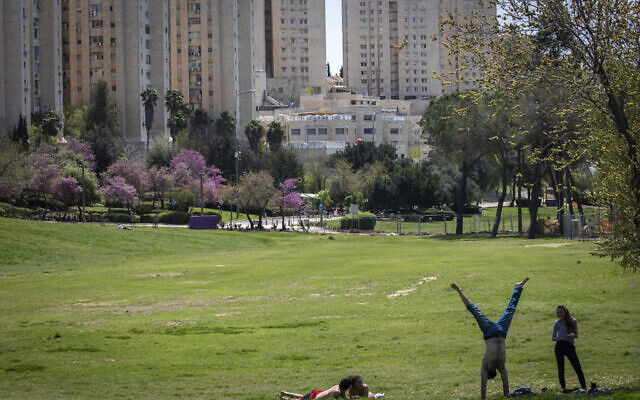
Those traveling from the airport to self-quarantine will not be allowed to use public transport, except taxis under specific conditions, and anyone caught doing so will be fined and forced to complete their quarantine in an isolation hotel, the statement said. Police will also enforce the self-quarantine.
The cabinet announced that it was allocating NIS 6 million ($1.7 million) to help bring back Israelis still stuck overseas.
The government also said that evening restrictions on shops and businesses in Arab-majority areas that were put in place for the Ramadan holy month would be lifted and only applied in specific communities that were designated virus hot spots.
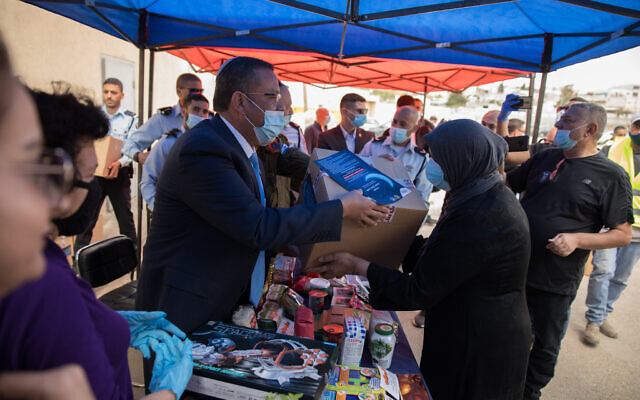
The restrictions, similar to those put in place over Jewish festivals and national holidays, are aimed at stopping a sudden spread through family or festive gatherings.
Interior Minister Aryeh Deri was quoted by the Ynet news site as saying the move was enabled by the Muslim community’s “exemplary behavior” during Ramadan, which helped curb the spread of the virus.
However, restrictions would likely be reimposed ahead of the Eid al-Fitr festival, which ends Ramadan and will be held on or around May 24, Hebrew media reports said.
In recent weeks, in the rest of the country, the government has rolled back many restrictions on movement and allowed most stores and businesses to reopen.
Parks and nature reserves are also now reopened, with people allowed to use public gym equipment as long as they respect social distancing rules. However, children’s playgrounds were still closed, the cabinet said.
Finally, the cabinet said that it was lifting the requirement to wear masks for people undergoing psychological treatments, even if they could not keep a 3 meter (yard) distance from the therapist. A similar waiver had already been approved for minors.
The statement made no mention of reopening beaches.
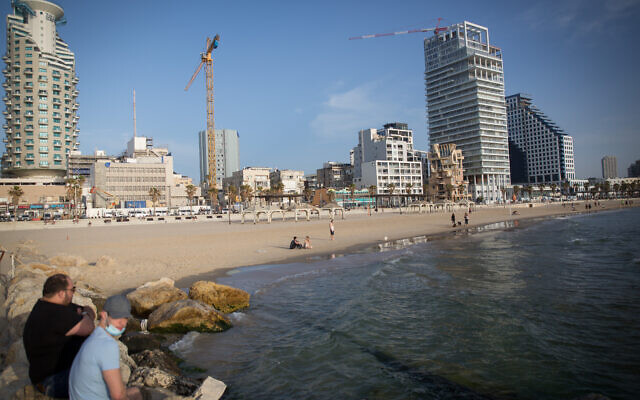
The cabinet meeting was halted in the afternoon and resumed at 9 p.m., after several ministers reportedly took issue with a clause limiting the use of workout equipment in parks, demanding that clause be removed due to the low rate of infections.
Public Security Minister Gilad Erdan in a tweet urged the Health Ministry to also reopen beaches and kick off the summer season, saying it was impossible to enforce the current regulations and explain the logic of most public places opening but not beaches, which have recently been been visited by many beach-goers despite the continued ban.
Police, meanwhile, were gearing up Sunday to enforce restrictions put in place for the Lag B’Omer festival, with traditional bonfires and large gatherings banned this year to prevent spreading the coronavirus.
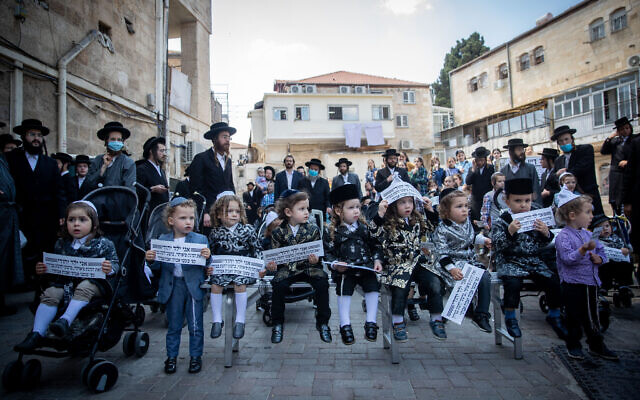
During the holiday, which begins Monday evening and runs through Tuesday, police will increase their presence in cities, beaches, forests, parks and open areas to enforce the emergency ordinances put in place for Lag B’Omer.
Besides patrolling in cars and on foot, police will also use aerial patrols to locate any bonfires or prohibited gatherings. Violators of the emergency ordinances, which came into effect over the weekend and will be in place until Wednesday, can be hit with a NIS 500 ($142) fine.
The holiday usually sees hundreds of thousands of Israelis throng the Galilee’s Mount Meron, famed as the burial site of the famed second century CE sage and mystic, Rabbi Shimon Bar Yohai. Children and teenagers across the country also celebrate the holiday with local bonfires.
Lag B’Omer has become a key holiday in the Jewish mystical tradition, said to be the day of the death of Bar Yohai, and also marking the anniversary of when he first conveyed the text of the seminal Jewish mystical work, the Zohar.
As reported by The Times of Israel
